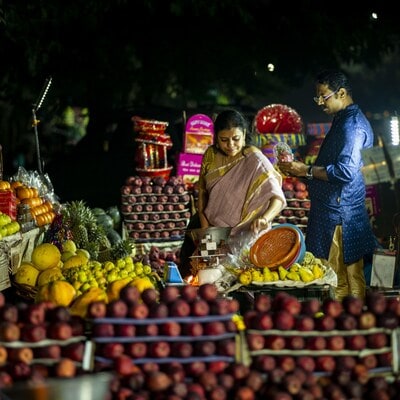
IndiaŌĆÖs favourite summer fruit Mango, is experiencing a significant price surge this summer. Mango prices soared nearly 12 per cent higher than last year. In June, mango inflation reached 37 per cent, up from 25 per cent in May, according to a report by Moneycontrol.
In the first two weeks of July, wholesale mango prices were 12 per cent higher at Rs 39.6 per kg, compared to Rs 35.4 per kg the previous year.
Other summer fruits are also showing high inflationary trends. Muskmelon prices have increased by an average of 15.8 per cent since the start of the fiscal year, while lychee inflation nearly tripled in June to 15.2 per cent from 4.6 per cent, the report claimed.
Overall fruit inflation in June was 7.4 per cent, compared to 3.3 per cent in March 2024.
The report said that high fruit inflation is likely to persist for the next few months. Vegetable inflation has been present for 10 of the last 12 months, rising to 30.2 per cent in June from 28.2 per cent in May.
Meanwhile, wholesale fruit inflation almost doubled to 10.14 per cent in June from 5.81 per cent in May.
Persistent heat and uneven monsoon distribution have resulted in reduced production of fruits and higher prices, the report added, citing agri-experts. Additionally, rising demand is also driving prices up.
Fruits and vegetables make up 10 per cent of the consumer basket.
Loss of post-harvest fruits and vegetables
Last month, a Bloomberg report highlighted that up to 15 per cent of fruits and vegetables are lost post-harvest due to poor infrastructure. Many small farmers cannot afford to invest in cooling and refrigeration along the supply chain. Additionally, India wastes nearly 80 million tons of food at the retail and consumer levels, second only to China.┬Ā
As climate change exacerbates extreme heat, these figures are likely to worsen in South Asia, a region highly vulnerable to rising temperatures.
Although Prime Minister Narendra Modi has modernised much of IndiaŌĆÖs infrastructure, farmers report that progress in their sector is lagging. Despite increases in the production of grains, fruits, and vegetables, refrigeration remains inadequate across the supply chain. Outside urban areas, storage, transportation, and retail distribution are hindered by poor road conditions and the distance between farms and wholesale markets.┬Ā
This spoilage during transit adds to procurement costs, driving up consumer prices ŌĆö a major concern during IndiaŌĆÖs ongoing election. Unlike grains, which can be stored for long periods, the short shelf life of produce makes it more challenging to manage.
First Published: Jul 17 2024 | 5:24 PM IST



